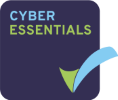Oh, you think you're so safe with your little green padlocks, huh?
Think again. PhishLabs have recently published research where they have found a staggering 24% of phishing sites use HTTPS, an otherwise well known protocol that used to establish trust and privacy of using a site.
Over the years, we have seen a massive push towards encryption of everyday services. Browsers now display a warning for sites that aren't encrypted and half the web now uses standard encryption for their websites. So why fight the competition when you can just join them?
How many times have you visited a website and trusted inputting your sensitive financial data just because your browser says its safe? It's time for that behaviour to change!
How to stay safe online
Create complex passwords.Yes, I know, you've heard it all before. But the reason you've heard this before because it is the forefront of security, and arguably the most important part. Having a strong password (e.g. complex, numbers, capitals, special characters) can save you from a world of trouble.
Be overly cautious.If its too good to be true, it probably is. Don't enter or give any information to anyone unless you can authenticate who they are. And, for whatever reason, don't click random links on the internet.
Look into active web protection.In a day and age of increasing number of cyber attacks, we also fortunately have an increasing number of methods to protect ourselves. Look into installing some form of active web protection that blocks possible malicious websites e.g. McAfee





